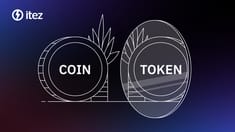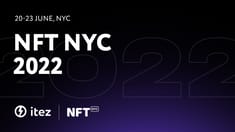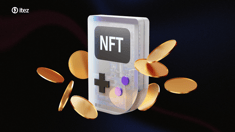Since September 21, four patent applications for PayPal have been published. The company filed them to the United States Patent and Trademark Office back in March 2022. Each of the applications is related to cryptocurrencies and blockchain technologies. Now they are still pending with no deadlines specified.
What is inside PayPal’s crypto patent applications
Three of PayPal’s patent applications were published on September 21, and one on September 28. Here are the highlights.
1. A patent application for Non-Fungible Token (NFT) purchase and transfer system
Inside the document: PayPal describes a new system that will allow buying and selling NFTs through a third-party custodial service. The company does not specify a particular provider. However, it mentions Ethereum.
PayPal speaks about an "omnibus wallet". It is a custodial service, which stores seller and buyer’s wallets, allowing them to exchange tokens without fees.
According to the text, NFTs can represent not only digital art but also "deeds to personal property, event tickets, legal documents, and other real-world items".
Potential use cases: NFT marketplace, custodial service for storing NFTs, service facilitating other companies to add NFT functionality to their business (launching loyalty programmes, and more).
2. A patent application for multi-layer cryptocurrency conversions using available blockchain outputs
Inside the document: The application describes an "online transaction processor". Its goal is to facilitate payments between L2 and L1 networks.
Layer 2 networks are a collective term for Ethereum scaling solutions built on top of Ethereum. Such networks take the load off and conduct part of the transactions. They are less secure and less decentralised. Some prominent L2 networks include Optimism and Arbitrum.
However, it is not just Ethereum that can do this; any other blockchain can have a similar scaling add-on.
PayPal offers a framework that will eliminate transferring of crypto from one chain to another, thereby making it easier for participants to interact. In the application, PayPal does not mention specific blockchains. This feature will be useful when, say, you have funds on Arbitrum, but the seller only accepts them on the Ethereum network.
Potential use cases: a cross-chain solution that simplifies the interaction between buyers and sellers, which could be integrated into a cryptocurrency wallet or just be a cross-chain bridge provided by PayPal.
3. A patent application for omniverse platform for predictive digital asset identification and recommendation in different metaverses
Inside the document: In this application, the service is also called an "online transaction processor". However, the idea is a bit different: this one is made to provide recommendations of best digital assets options based on users’ behaviour and habits in different metaverses.
Potential use cases: launching a service describing certain digital items and assets or providing data for other similar services.
4. A patent application for selection of validators in a decentralised cryptographic network
Inside the document: In this one, PayPal partially discloses its technology that allows it to directly request the addition of a transaction into the blockchain "to a desired subset of miners or validators".
Potential use cases: launching PayPal’s own validators or miners, interacting with specific market participants (e.g., partner companies), or providing intermediary services between specific validators or miners and interested parties.
Why PayPal to make patent applications related to crypto
Perhaps, the company will launch its own crypto services: NFT marketplace, cross-chain solutions, etc. Otherwise, PayPal will provide an infrastructure framework that can be used by other businesses.
Keep in mind that these are just patent applications, which do not commit the company to launching actual services. However, they clearly demonstrate PayPal's enthusiasm about entering the blockchain realm.
Back in August, the payment giant started to show more interest in crypto and even launched its PYUSD stablecoin, which turned out to have some pitfalls. Read more about it in our article: Challenges with PayPal's stablecoin: 3 key concerns.
You might also like:








